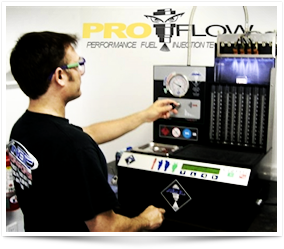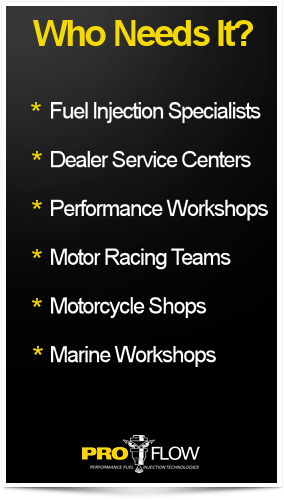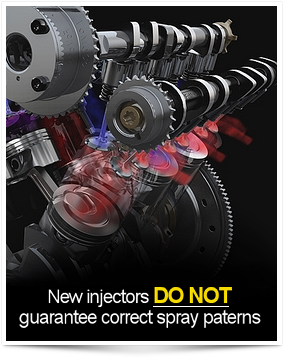Fuel Injection
Fuel injection replaced carburetors as the main form of fuel/air delivery to vehicles in the mid 1980s. This simple and efficient design allowed a new standard of reliability and efficiency by delivering fuel in varying volume and frequency. This process would become more sophisticated as more and more electronics replaced mechanical components within the fuel injection system.
With a gasoline engine, fuel is delivered by an electronic fuel pump. The fuel subsequently passes through a filter that removes most contaminates that have entered or corroded from the vehicles fuel tank.
The filtered fuel then enters engine’s fuel rail. The other end of this rail is connected to a line that leads back to the fuel tank – called a return line. This line contains a fuel pressure regulator that ensures all fuel within the fuel rail is kept at a constant pressure for precise metering of the fuel.
The engine’s injectors ‘feed’ from this pressurized fuel delivery circuit.
The function of a fuel injector
Most modern injection systems take into account the outside air temperature, driver demand, air density, exhaust gas, crankshaft and camshaft positioning during fueling. These many variables are received by the engine’s control unit (ECU) and directly affect how much and how often fuel is injected into the engine’s cylinder head.
How injector cleaning works
Ultrasonic Fuel Injector Cleaning by ProFlow Technologies removes internal contaminates and lubricating internal parts prior to use.
Injector Spray Patterns
Spray patterns can change due to contaminates from the engine side of the injector adhering to the injector pintle and obstructing the path of the injected fuel. A correct spray pattern will produce a fine mist of gas that burns both quickly and efficiently within the engine through a process known as atomization and combustion. When the spray pattern deteriorates, atomized fuel no longer form an effective suspension with the air being drawn or forced into the engine.
Symptoms fuel injector deterioration include:
- Increased fuel consumption
- Rough or erratic idling
- Poor cold starting
- Engine detonation
- Ignition misfiring
- High exhaust emissions or particularly un-burnt hydrocarbons
- Engine hesitation
GIVE US A CALL AT 727-992-0435















